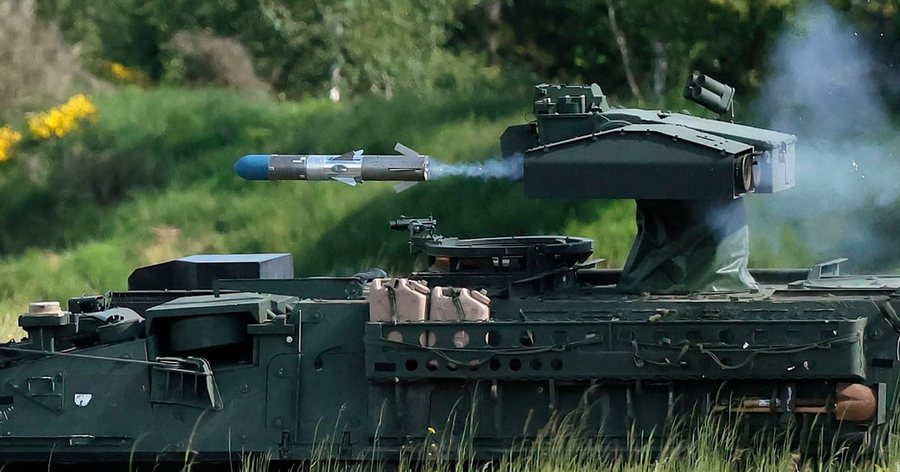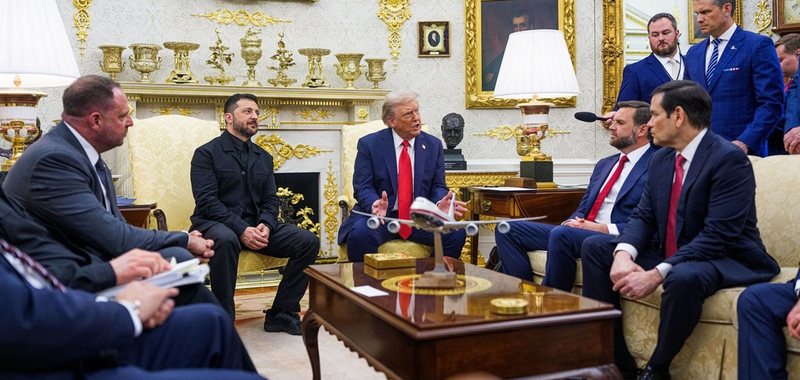China "controls" the German military - Dependence on critical Chinese minerals threatens the development of the industry

Chancellor Friedrich Merz has expressed his intention to turn Germany into Europe's leading military power. However, his and his government's ambitions could face a serious obstacle: the European defense industry's heavy dependence on China's critical minerals.
These materials, such as neodymium, dysprosium, tungsten, graphite, titanium, and pure magnesium, are essential components in modern military equipment. They are used for radars, electric motors, missile guidance systems, drones, and many other devices.
But the vast majority of these materials come from China. The EU imports about 95% of all strategic raw materials, and for 90% of them it depends on countries outside the bloc. Moreover, Germany has almost no capacity to process these minerals. Meanwhile, Beijing controls over 50% of global processing for most of these elements, and in some cases, such as gallium and germanium, which are particularly important for defense, its control goes up to 86%.
European researchers and rare earth experts warn that the lack of access to these resources could lead to an immediate halt to plans to strengthen the defense industry. Beijing has begun to limit exports of raw materials to Western defense companies, causing production delays and significant cost increases. This is happening at a time when Germany has undertaken the most ambitious plan in recent decades to strengthen the armed forces. Berlin has promised to spend hundreds of billions of euros on defense by 2029. But if the basic materials are missing, none of these investments will have a concrete result.
Meanwhile, the US has long built a legal framework to guarantee the supply of strategic materials, such as the Defense Production Act, which allows the government to fund domestic mining, direct supply chains, and support defense needs. There is also a national strategic reserve for emergencies, maintained by the Defense Logistics Agency.
In contrast, Brussels has chosen a softer approach. The EU's Critical Raw Materials Act sets general targets, but practical implementation is left to member states, through voluntary coordination. There is no central authority to guarantee supply. "We don't have state reserves, like for gas or oil," experts point out.
This dependence poses a direct threat to national security. “Without secure supply chains, there is no reliable defense,” they explain. To build a sustainable defense industry, Berlin must undertake structural reforms and activate domestic resources. Germany has reserves of lithium and other important minerals, but projects to extract them face political and bureaucratic opposition.

Support for Ukraine, Europe surpasses the US - Leads in arms spending, defense industry contracts
In May and June 2025, European countries continued to maintain a high level of support for Ukraine, especially in military aid. A significant part of the......

Europe reacts after White House meeting - Leaders of major powers optimistic about reaching ceasefire in Ukraine
After meeting at the White House, European leaders expressed moderate optimism that US President Donald Trump is making progress in fulfilling his election......

ChatGPT, 2 billion USD in two years - The application generates about 3 dollars for each installation on the phone
ChatGPT’s phone app has generated $2 billion in consumer spending since its launch in 2023, earning an average of $2.91 per install. This year alone, the app......

"US, part of security guarantees" - Trump assures Zelenskyy of US commitment to Ukraine
As the world held its breath for the Donald Trump-Volodymyr Zelenskyy summit in the Oval Office, with EU leaders watching from behind closed doors, the two......

Announcement for the Milot Road and Railway Bridge/ ARRSH: The emergency intervention project is completed!
The Albanian Road Authority announces that in collaboration with the Polytechnic University of Tirana, they completed in a short time the drafting of the......

"Electric trains coming in 2027" - Tirana-Durrës-Rinas Railway, construction of stations begins
"The construction of the Tirana-Durrës-Rinas railway line will be completed next year, while the electrification and arrival of trains for the start of......

Tourism, with a positive balance/ 38.2% increase in nights spent in accommodation structures
Tourism in Albania is experiencing continuous development, attracting an increasing number of visitors from the region, Europe and various countries around......

New Law on Concessions and PPPs - Selection by a special commission, monitoring by the Contract Implementation Unit
The Law "On Concessions and Public-Private Partnerships" is expected to be amended by introducing new legal provisions. The draft law has been submitted to......


















